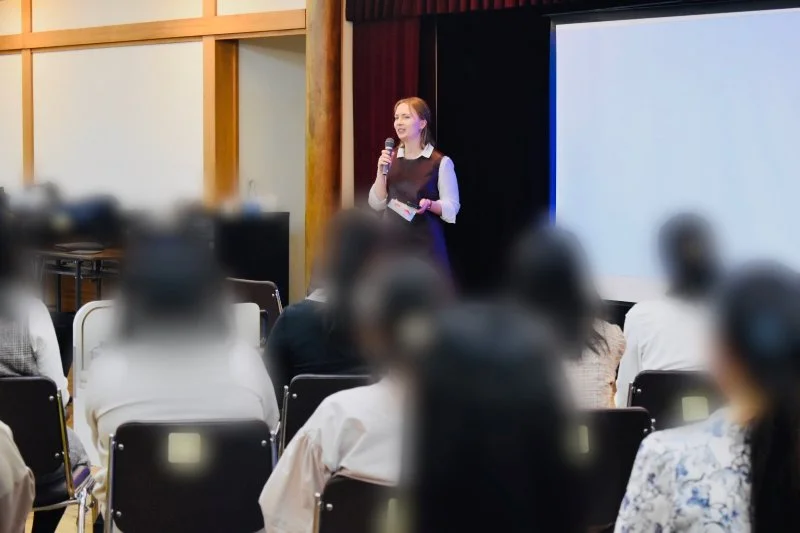Introducing my research during a marriage hunting party sponsored by the Tokyo Metropolitan Government in Spring 2024. Majority of local governments in Japan now provide dating services intended to enable young people to find a marriage partner. The private and non-profit sectors have, too, provided marriage hunting services to help address the country’s demographic crisis.
The stratospheric rise of new dating services like Tinder and Hinge has imbued the economic metaphor of a “marriage market” with new resonance. If an ethos of romantic love—premised on the logic of scarcity and the recognition of another person’s uniqueness—used to define how we chose our partners, today, the language of efficiency, calculability, rationality, and mass production dominate dating. How has this economistic understanding, previously confined to social scientists and cynics, become mainstream? And what does it mean to become a commodity in a dating marketplace?
My first book, Marriage Hunting: Dating Markets, Intimate Governance, and the Politics of National Decline in Japan explains this shift through an in-depth examination of a bustling courtship industry that emerged in Japan in the 2010s. Named “marriage hunting” after the Japanese term for job hunting, this market entails services ranging from dating apps and singles mixers to seminars about dating etiquette. Industry professionals insist that clients—especially women—must approach matrimony the same way they would seek employment: with a strategic mindset, determination, and resources at their disposal. Meanwhile, against the backdrop of a demographic collapse, stagnant economy, and widespread concerns about national decline, the idea that commercial dating services will increase marriage rates and lead to procreation finds wide purchase across policymakers, journalists, academics, and the general public.
Drawing on more than two years of field research in Japan—including over 150 interviews with state actors, market professionals and their clients, participant observation of dating events and seminars, and analysis of documentary evidence—my book explicates how and why the marriage hunting market has become central to the politics of reproduction in contemporary Japan. It also documents the consequences of this shift for the lived experiences of men and women who navigate this new commercial dating landscape. Ultimately, I demonstrate how the dating market becomes a site of what I call intimate governance—it implicates individual desires in the project of national revitalization. By connecting individual experiences with surrounding social forces I demonstrate how looking for a spouse is not a private matter, but rather a market-mediated social process that reorganizes individuals’ relationships to masculinity and femininity as well as to the institutions of heteronormative marriage and nuclear family—and therefore to the state.
